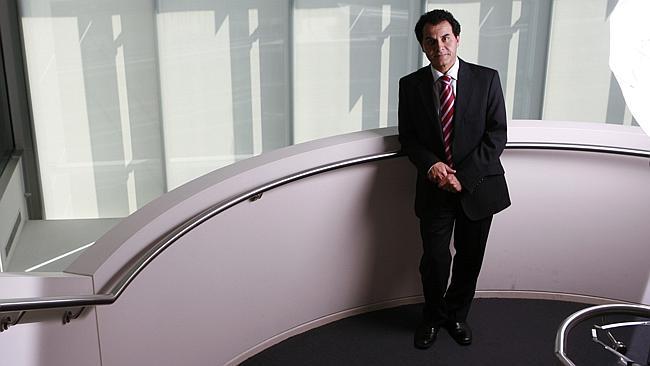Medibank ready to float
IF the government gets the Medibank float right it will unleash a string of privatisations.

THE excitement building about the forthcoming Medibank Private float is palpable: If the government gets this one right it will unleash a string of privatisations that could change the face of the local stockmarket. If it goes wrong there will be hell to pay from investors, policyholders and a jamboree for Labor.
There is plenty to be concerned about because we have an inexperienced minister, Mathias Cormann, struggling to communicate his position on financial advice reforms. At the same time the history of federal level privatisations has not been without horror stories. Anyone who lost money on the ill-timed T2 (the second tranche of Telstra’s privatisation) that hit the market with a thud in the dark days of 2008 will tell you that.
Cormann has already been sending the wrong signals: On the announcement of the float that will be worth north of $3.5 billion he poured cold water on the notion of policyholder participation, citing no legal requirements for the government to offer anything to Medibank private’s 3.8 million policyholders.
If this float is to succeed, policyholders absolutely must be given a share deal. George Savvides, the long-time Medibank Private chief executive, won’t comment about this, but back in 2006 when the float almost got going before the GFC he clearly supported the idea when he said this to Eureka Report: “There could be some special advantages in the alignment of the membership base. A customer base also being a shareholder base of that organisation. I think it would prove to be a good direction and keep the organisation on course.”
I doubt very much Savvides has changed his views.
The government and Cormann in particular would be acutely aware that the new era of government privatisations has recommenced. If they want to see how it’s done, look no further than Britain, where the Conservative government recently privatised Royal Mail with tremendous success.
In fact, the Royal Mail exercise has been followed this week with reports that the Cameron government is planning to float a significant chunk of Lloyd’s Banking Group, an institution that was on life support only a few years ago.
And the lesson from Britain is to err on the side of caution: Every float has to find a balance between giving it away too cheaply and fleecing shareholders with a price that is too high. With the Royal Mail the British government pitched too low. Sure, there were catcalls in parliament that they gave a taxpayer asset away too cheaply, but the float was a financial and crucially, a cultural success. The Abbott regime would be well advised to do the same.
As for the issue of doing it fair by the policyholders — it is entirely reasonable for policyholders to “claim” (sorry!) they have rights to benefit in a float of Medibank Private. There are nearly four million people who have allowed this organisation to get to the point where it currently makes $233 million a year.
Moreover, the precedent has been clearly set by the last significant float of a health insurer, which was the listing of demutualised NIB in 2009.
NIB offered a set number of free shares to policyholders on the basis of their proven commitment to the organisation. Specifically, if policyholders had a casual relationship with the insurer they were entitled to no more than 100 shares. If they had a full family cover arrangement they were entitled to no more than 6000 shares. At the very least, Medibank Private policyholders must be offered some preferential treatment to the wider public.
The other important issue before listing is the Medibank Private Act 2006, which should be scrapped: It restricts any shareholder to 15 per cent of the share register. If a company is privatisated, then it should be free to trade like any other; just look at what’s happened to Qantas.
The strengths of Medibank Private as a market candidate are obvious: It is an iconic brand, a business that plays into both healthcare and the ageing demographics of Australia.
Its return on equity in the mid-teens is admirable in the context of a government-owned enterprise and its strong dividend flows can be converted to that most desirable of targets, a handsome dividend yield.
What’s more, the numbers that Medibank Private has been achieving in a market with regulated prices are in the very narrow confines of health insurance only — the least profitable wing of the insurance sector.
Set free from its current restrictions, the company can expand into all forms of higher margin insurance leveraging off its existing household brand name.
There are flaws in Medibank Private that will become a lot more obvious when it gets the white-hot glare of the market assessing a public listing. For a start, in the primary business of health insurance if the company is restricted on pricing it will most likely turn to cost-cutting.
Separately, a very high percentage of its claims come from a very small percentage of its customers; this is a constant management pressure.
Savvides is a man with a lot of patience. He is a leading health executive who took the job in 2001 with a view to floating the group.
He now finds himself more than a decade later at the start of the privatisation process. His contract will be worth seeing assuming he decides to stay on.
It’s also interesting that behind the scenes there have been one or two very important personnel moves; Steve Vamos, a top IT executive who got into trouble over ill-timed share purchases as a David Jones director and later had to step down from the board of the retailer, has also stepped down as a director of Medibank Private.
As part of the same shake-up, Linda Nicholls has been appointed as a new director of Medibank Private. Who’s Linda Nicholls? A company director who is best known for her time as chairman of Australia Post. Yes, it all fits together. Australia Post is the next float that will come down the track if Medibank Private goes off with a bang, and assuming Cormann and company get their ducks in a row, it will.



